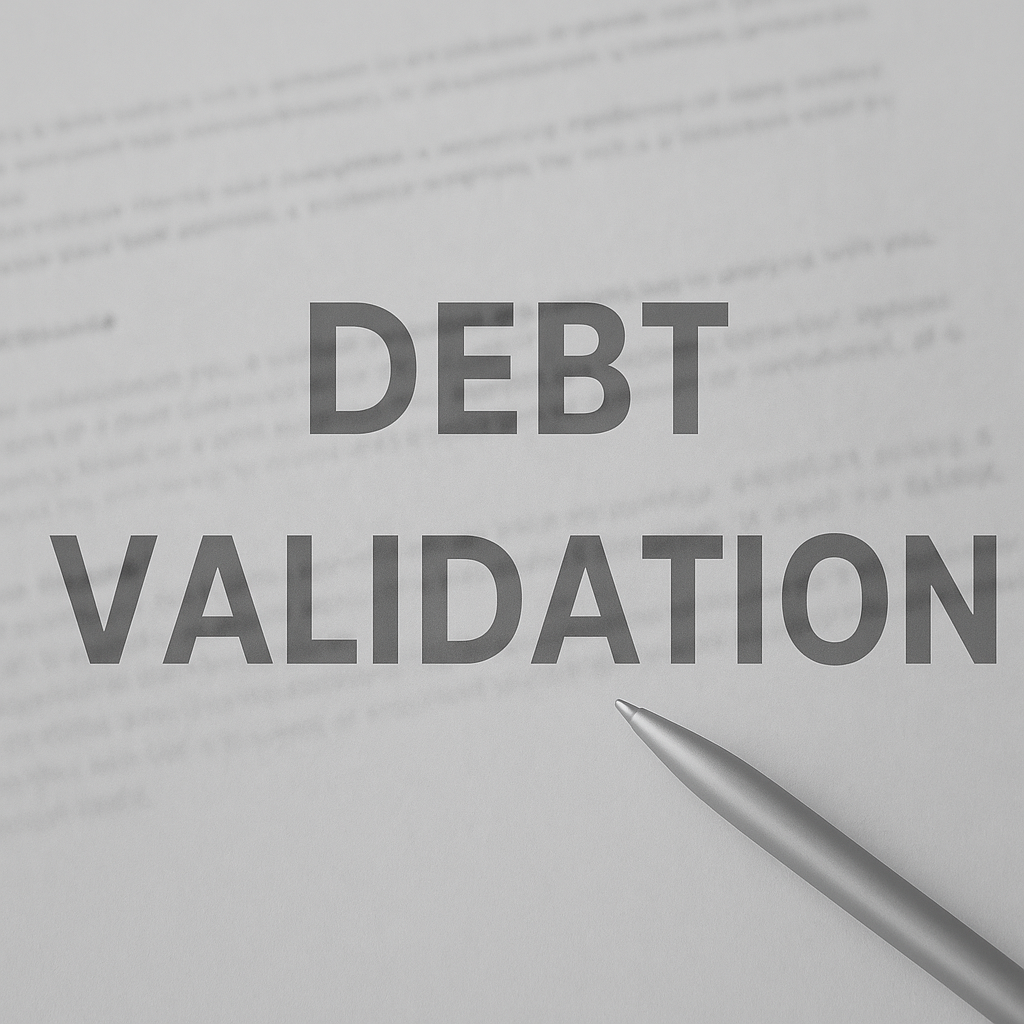
What Is a Debt Validation Letter and Why Does It Matter?
When a debt collector makes contact, it feels overwhelming.
Do not lie! The phone calls, the letters, and the pressure to pay makes you feel like you’re suffocating.
You ignore the debt collector. Ask me how I know. SMILE! Because I did. I ignored their asses until I got sued. I didn’t even know I was sued. I had not been served, even though the creditor had my address. I only found out because of an advertisement I received from an attorney. The attorney wanted me to hire them to fix the problem. I panicked because I had one day left to answer. What would you do in this situation?
Me? I grabbed my phone, called an Uber, and went straight down to the Justice of the Peace to file a general denial. Then I pulled out my old consumer law books. That wasn’t the first time I had cracked them open. Back in law school, I had already disputed a debt for someone after reading about the Fair Debt Collection Practices Act (FDCPA) in my consumer law class. So, I knew about debt validation letters; I just hadn’t thought about my own case in the same way until that moment.
That’s when it hit me: before you pay a dime, you have rights under Texas and federal law.
And one of the most powerful tools you can use is the Debt Validation Letter.
Your Rights Under Federal Law
The Fair Debt Collection Practices Act (FDCPA) is a federal law that says debt collectors cannot bully, harass, or trick you.[1] More importantly, it gives you the right to ask for proof before you agree to pay. [2]
If a collector contacts you, you’ve got 30 days from the first written notice to send them a Debt Validation Letter. [3] This is basically you saying: “Show me the receipts.”
You can ask them to prove:
you are the correct debtor,
the name of the creditor,
the amount is correct and what they are relying on to calculate the amount due,
whether they have the legal right to collect it, and
a statement that you have the right to dispute it. [4]
Once you make this request, they must stop collecting until they provide proof. [5] If the creditor can’t give you this, and you have disputed within the 30-day window, the creditor can’t keep coming after you. Periodt!
The Fair Debt Collection Practices Act (FDCPA) is a federal law that says debt collectors cannot bully, harass, or trick you. More importantly, it gives you the right to ask for proof before you agree to pay.
Texas Law Builds On Federal Protections
The part most people don’t know is that Texas gives you even more protections on top of federal law:
Four-Year Limit: In Texas, most consumer debts have a four-year statute of limitations. [6] If it’s been more than four years since your last payment, a creditor usually can’t sue you. But be careful out in these debt collection streets! Ya heard me?! Texas note: If a consumer debt is already past the four-year statute of limitations, Texas law says the claim is not revived by a payment, a promise to pay, or any other activity on the debt (Texas Finance Code § 392.307(d)). [7] Separately, under the Civil Practice & Remedies Code § 16.065, an acknowledgment of a claim that appears to be barred by limitations is not admissible to defeat the statute of limitations unless the acknowledgment is in writing and signed by the person who owes the debt. [8]
No Scare Tactics: Texas law applies broadly. Federal law (the FDCPA) mainly targets third-party debt collectors, like collection agencies or debt buyers. Texas goes a step further. Under Chapter 392 of the Finance Code, anyone collecting a consumer debt, including the original company you owed, must follow the rules. That means no threats, no harassment, no misleading you. [9]
Protects Your Home: Texas homestead laws are some of the strongest in the country. Collectors can’t threaten to take your home over ordinary consumer debt. [10]
Protects Your Wages: For credit cards, medical bills, or personal loans, Texas law does not allow wage garnishment. If a collector threatens to garnish your paycheck for those debts, that’s not legal. [11]
Why This Matters
Asking for debt validation isn’t about dodging responsibility. It’s about making sure the debt is real, accurate, and collectible under the law. It shifts the power back into your hands instead of letting collectors call all the shots.
At Veronica Lockett Law, PLLC, we help people stand firm on their rights. You don’t have to be bullied or rushed into paying. The debt might be valid, but you still have the right to make sure it’s accurate, that the amount is correct, and that the collector is following the law.
With the right knowledge, and the right letter, you can protect yourself and your family while deciding the best way forward.

